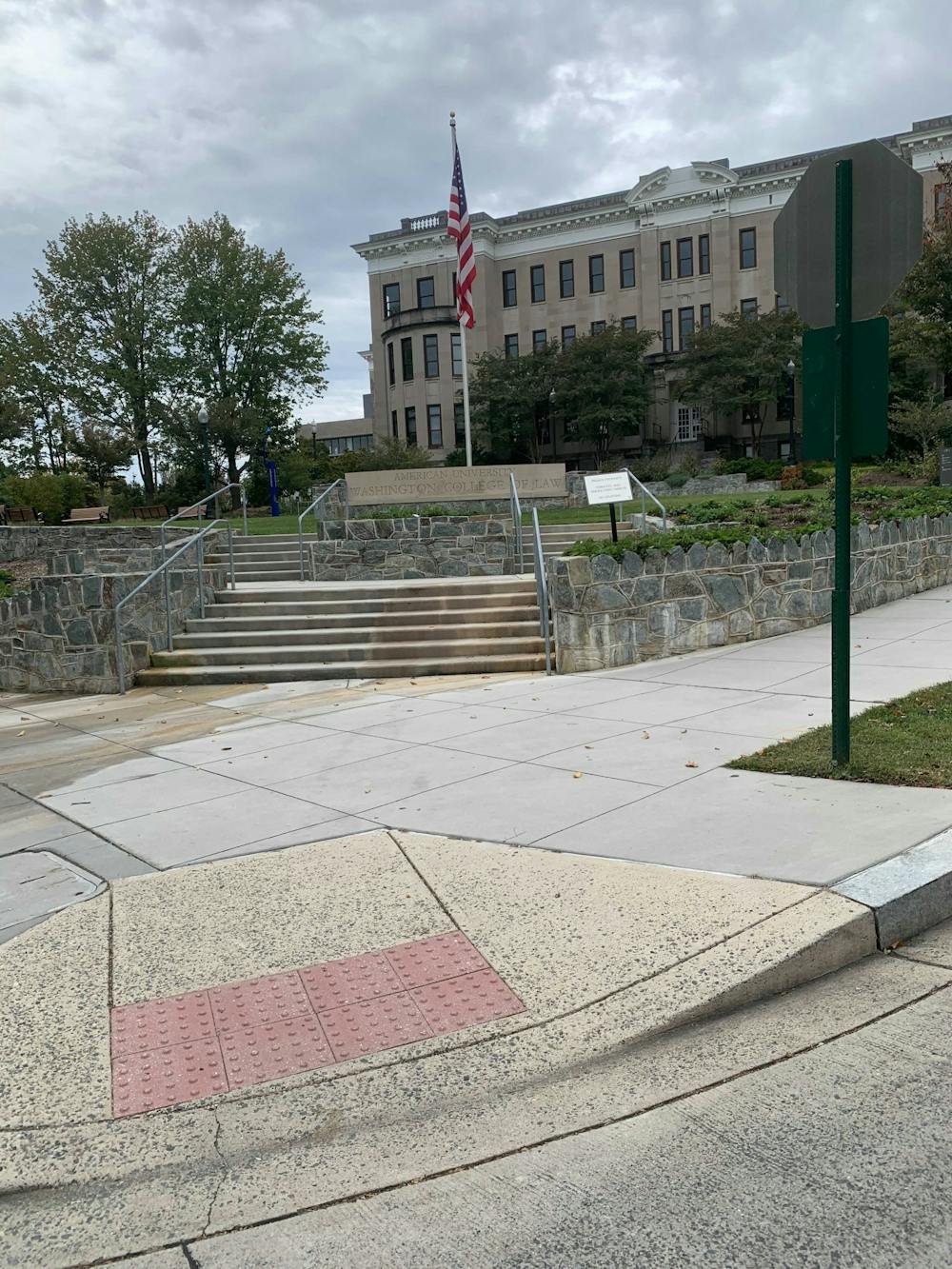Two weeks ago, the Washington College of Law hosted the 22nd Annual Hispanic Law Conference, with speakers addressing political and social issues that impact the Latinx community.
Over the course of three days, legal scholars and students gathered virtually to discuss issues such as the coronavirus, census, elections and social justice movements. The event was co-sponsored by the Hispanic Bar Association of the District of Columbia, Latin American Law Students’ Association and the Latino/a Alumni Association of the Washington College of Law.
One of the main points of discussion on Oct. 15 was how the coronavirus is disproportionately impacting Latinx communities. According to data from the Centers for Disease Control and Prevention, Latinos have a 4.6 times higher chance of hospitalization due to the virus than white, non-Hispanic persons.
Macarena Sáez, the faculty director of the Center for Human Rights and Humanitarian Law, led the panel of Juan-Pablo Gutierrez, a professor at Centro de Investigación en Políticas; Daniel López-Cevallos, a professor at Oregon State University; and Elena Rios, president and CEO of the National Hispanic Medical Association.
Living below the poverty line severely affects access to healthcare and quality of living conditions, increasing people’s risks to exposure and complications from the virus. Low-income individuals are also more likely to be essential workers, or people who provide an essential service such as producing food or providing public transportation.
According to data from the D.C. Fiscal Policy Institute, in 2014, 22 percent of Hispanic residents lived below the poverty line compared to 7 percent of white, non-Hispanic residents. Nationwide, 18 percent of Hispanic residents lived below the poverty line in 2017, according to the U.S. Census Bureau.
Gutierrez said COVID-19 has exposed how poverty tends to affect specific communities, such as Indigenous communities.
“There is also a layer of who are those who suffer the most, and poverty is not a situation that affects everyone but it tends to affect specific communities as well so I think COVID-19 has left that open,” Gutierrez said.
Coupled with worrying about increased risks related to COVID-19, Rios said Latina women are taking on more roles in a traditional household setting, such as being the sole caregiver. She said this can add more stress, affecting their physical and mental health.
“Many Latinas and women have had problems with pregnancies because of COVID-19 and clotting, especially in high blood pressure problems,” Rios said.
Immigrants seeking asylum in the U.S. are also facing increased risks in transmitting the virus due to reports of outbreaks in privately-run immigration detention centers. López-Cevallos said there is also a lack of testing, contact tracing and data to prevent the spread of the virus in these centers and communities.
“There is a larger issue in terms of data transparency through the pandemic,” López-Cevallos said. “We know the administration re-routed hospital data from the CDC right into a third party and we have an issue with data transparency.”
Gutierrez said it was clear that in certain countries, their health systems were not up to par to deal with a pandemic. He said the systems that were underfunded and already could not provide healthcare to the entire population are paying for their lack of investment now.
Rios agreed that there needs to be a better public health system and community health centers in place to help poorer communities. She also emphasized the need for more research on Latinx people to better understand how COVID-19 is impacting them.
“We need better data on the Latino population. We need better research and we’re very much regionalized on different populations,” Rios said. “We need to have the subpopulation data and we need to include them in clinical research and clinical trials so we can better understand strategies that are directed to those communities.”





